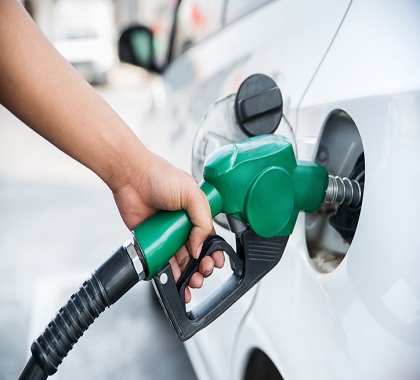Funding transportation projects has become a major problem for Illinois, as it has for many other states. In 2017, Illinois passed its first budget in years, yet the record $5 billion income tax hike did not include basic funds for infrastructure. Traditionally, Illinois has funded new infrastructure projects through a separate capital bill, which generates a different series of dedicated funds and liabilities for the state. The last capital bill in Illinois passed in 2009, when state legislators allocated $31 billion for infrastructure projects.
Now, several proposals to generate new funds for Illinois’ transportation network have been put forward by organizations across the state. One plan introduced by the Illinois Economic Policy Institute (IEPI) would move the state in the wrong direction by increasing the state’s motor fuel tax to $0.85–$1.00, up from the current gas tax rate of 34 cents per gallon, which ranked 11th-highest among all states in 2017, according to the Tax Foundation.
IEPI’s proposed hike would make Illinois’ gas tax the highest in the nation, at least one-and-a-half times Pennsylvania’s 58-cents-per-gallon rate – the highest in 2017. The IEPI proposal would also increase Illinois’ annual vehicle registration fee from $101 to $578. Another of the plan’s misguided ideas is a vehicle-miles-traveled fee of 4–5 cents per mile.
One of the main reasons Illinois’ gas taxes are amongst the highest in the nation is Illinois is one of only seven states that also applies a sales tax to gasoline purchases, which is added on top of state and local motor fuel taxes. In 2011, residents in the Prairie State paid the third-highest combined local, state, and federal gas tax in the nation.
Any proposal that would increase Illinois’ gas tax ignores the mounting evidence showing gasoline levies are a regressive form of taxation that shortchange transportation networks. In recent years, the rise of fuel-efficient cars has decreased motor-fuel-tax coffers and disproportionately shifted the burden to low-income drivers, a group that typically owns older, less-fuel-efficient vehicles.
On the other side of the debate, the Illinois Policy Institute(IPI) argues legislators should consider the inflated costs of public construction projects in Illinois before they hike taxes or fees. Austin Berg, a writer for IPI, points to Illinois’ high workers’ compensation costs – Illinois has the highest workers’ compensation costs in the Midwest – and prevailing-wage requirements as key cost drivers for Illinois transportation projects.As an example, Berg compared Illinois to Indiana and found Indiana’s average workers’ compensation insurance premium costs made up only four percent of an average payroll, compared to 22 percent in Illinois.
It is not practical to increase taxes or fees on households that are already cash-strapped. A tax hike would raise prices on goods and services throughout the economy, not just on gasoline because virtually all consumer goods are transported using gasoline-powered transportation. Businesses will simply pass the added costs on to consumers.
Illinois should explore more modern and efficient methods to fund road construction and other infrastructure projects. Illinois lawmakers ought to consider options such as privatizing roads or establishing toll systems. In several cities, transportation agencies are also implementing congestion pricing – varying toll prices based on congestion – to manage demand and limit traffic problems. A similar approach in the notoriously congested streets of Chicago is another viable option Illinois policymakers should carefully consider instead of simply increasing the already onerous taxes on Windy City residents and commuters.
The following documents provide additional information about how motor-fuel taxes are applied and their effect on the economy.
State Motor Fuel Taxes: April 2018
http://www.api.org/~/media/Files/Statistics/State-Motor-Fuel-Taxes-Report-Apr-18.pdf
The American Petroleum Institute documents each state’s current motor-fuel taxes (both gasoline and diesel).
Hosed at the Pump: Illinois Gas Taxes
https://www.illinoispolicy.org/hosed-at-the-pump-illinois-gas-taxes/
The Illinois Policy Institute discusses the state gasoline sales tax, how it harms Illinois drivers, and why this high tax is inefficient and unnecessary. Illinois is one of only seven states charging a sales tax at the gas pump. “Illinois should follow the lead of the 43 states that don’t charge a sales tax on gasoline and end this practice, saving taxpayers millions of dollars.”
Alternatives to the Motor Fuel Tax
http://heartland.org/policy-documents/alternatives-motor-fuel-tax
This report, prepared by the Center for Urban Studies at Portland State University and submitted to the Oregon Department of Transportation, evaluates potential alternatives to motor-fuel taxes. The report also identifies the economic and technological problems that must be addressed when designing alternative revenue sources.
New Bill Would Make Illinois Gas Taxes Highest in the Nation
https://www.illinoispolicy.org/new-bill-would-make-illinois-gas-taxes-highest-in-the-nation/
Austin Berg of the Illinois Policy Institute examines a plan from the Metropolitan Planning Council that calls for a massive 10-year, $43 billion plan to fund state and local roads, public transportation, railways, and large public projects. This plan would be funded by a huge 30-cents-per-gallon hike of the state’s motor-fuel taxes.
Designing Alternatives to State Motor Fuel Taxes
http://heartland.org/policy-documents/designing-alternatives-state-motor-fuel-taxes
Writing in Transportation Quarterly, Anthony M. Rufolo and Robert L. Bertini consider the future of motor-fuel taxes as more fuel-efficient vehicles become available. They also report on the economic effects of road pricing as a substitute for fuel taxes.
Paying at the Pump: Gasoline Taxes in America
http://taxfoundation.org/article/paying-pump-gasoline-taxes-america
Jonathan Williams argues gas taxes can be an effective means of funding transportation improvements. In many cases, however, governments exploit the taxes for political reasons, spending them on projects unrelated to roads and other transportation improvements.
Gasoline Fuel Tax Rates as of January 2016
https://www.artba.org/economics/research/gas-tax-history/
The American Road & Transportation Builders Association provides a map documenting state gasoline tax rates, using data from state Departments of Revenue.
Research & Commentary: Congestion Traffic Pricing
http://heartland.org/policy-documents/research-commentary-congestion-traffic-pricing
Congestion pricing, an alternative to gasoline taxes, uses market principles to address traffic congestion. Under congestion pricing, operators of a road charge a variable price based on congestion, allowing the operator to manage demand and limit congestion. Heartland Senior Policy Analyst Matthew Glans examines several proposals for implementing pricing systems to alleviate traffic congestion.
Raising Gas Taxes Won’t Fix Our Bridges
https://heartland.org/policy-documents/raising-gas-taxes-wont-fix-our-bridges
In the aftermath of the I-35 bridge collapse in Minneapolis, Minnesota, Adrian Moore of the Reason Foundation argues increasing fuel taxes should not be the only response to state transportation funding problems. Moore wrote, “First we must examine how we spend transportation dollars now. Then we maximize the value out of those dollars. Finally, the last step is to address the need for additional revenue.”
Nothing in this Research & Commentary is intended to influence the passage of legislation, and it does not necessarily represent the views of The Heartland Institute. For further information on this and other topics, visit the Budget & Tax News website, The Heartland Institute’s website, and PolicyBot, Heartland’s free online research database.
The Heartland Institute can send an expert to your state to testify or brief your caucus; host an event in your state, or send you further information on a topic. Please don’t hesitate to contact us if we can be of assistance! If you have any questions or comments, contact Arianna Wilkerson, Heartland’s government relations coordinator, at [email protected] or 312/377-4000.




